This natural, cheap, and powerful ingredient is a gardener's best friend – how to use apple cider vinegar in the garden to reap astonishing results
Apple cider vinegar is a safe and natural product to introduce into your garden, and here's how

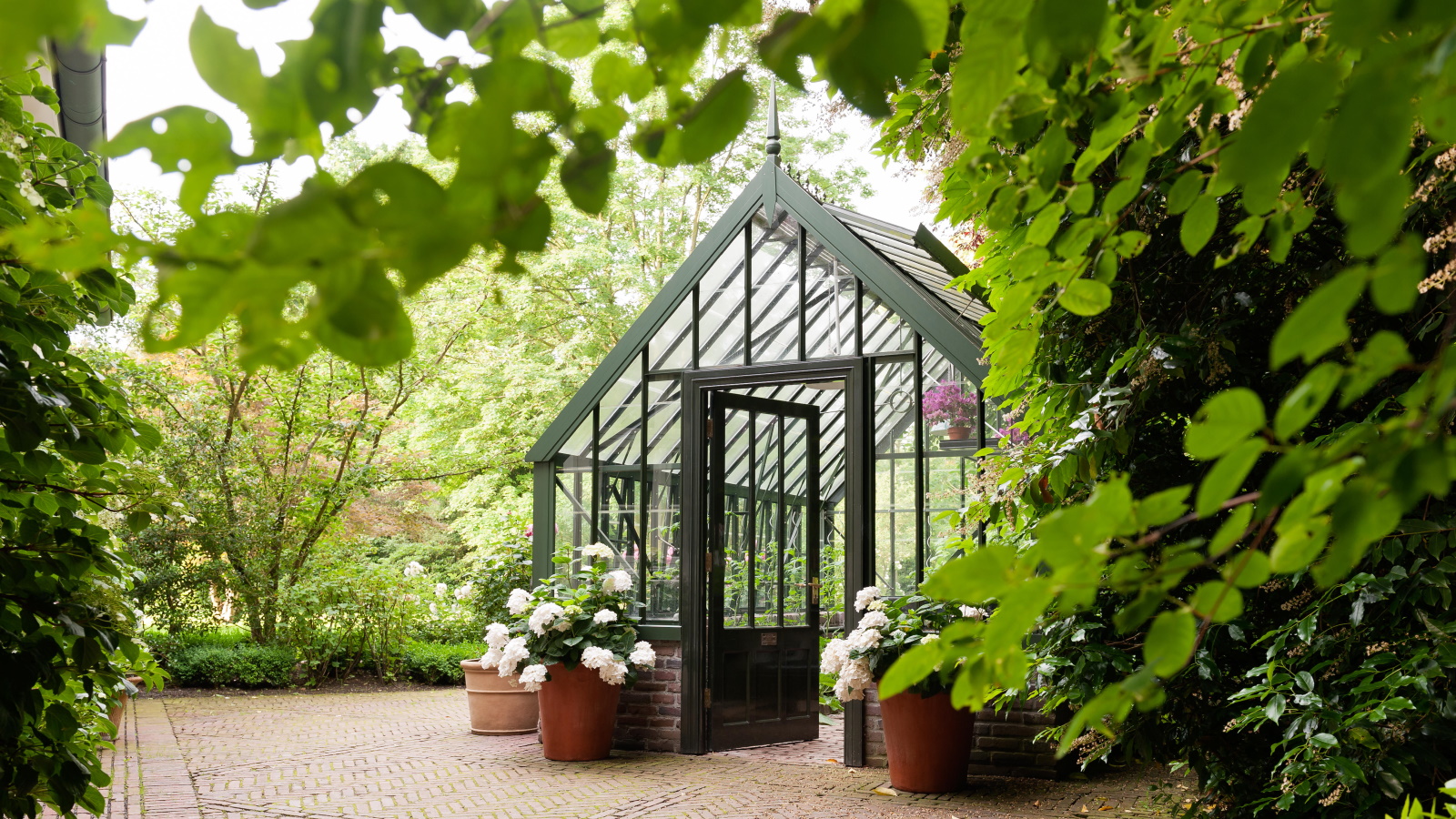
Apple cider vinegar is a highly nutritious elixir that many of us know for its health-promoting qualities. Though you might be surprised to hear that it is as much of a boon to your garden as it is for your health.
As the collective consciousness of gardeners awakens to the real need to garden organically and embrace sustainable garden ideas, the use of store-bought chemicals to resolve our gardening issues is being exposed as a danger to ecosystems and threat to wildlife.
Many of us are now turning to the strength of natural, cheap, easy practices and formulas that have been used effectively for years. One of these rediscovered gardening hacks is apple cider vinegar, which is quite the hardworking tonic in the garden. Here are five clever ways to use apple cider vinegar in the garden.
1. Fertilize acid loving plants
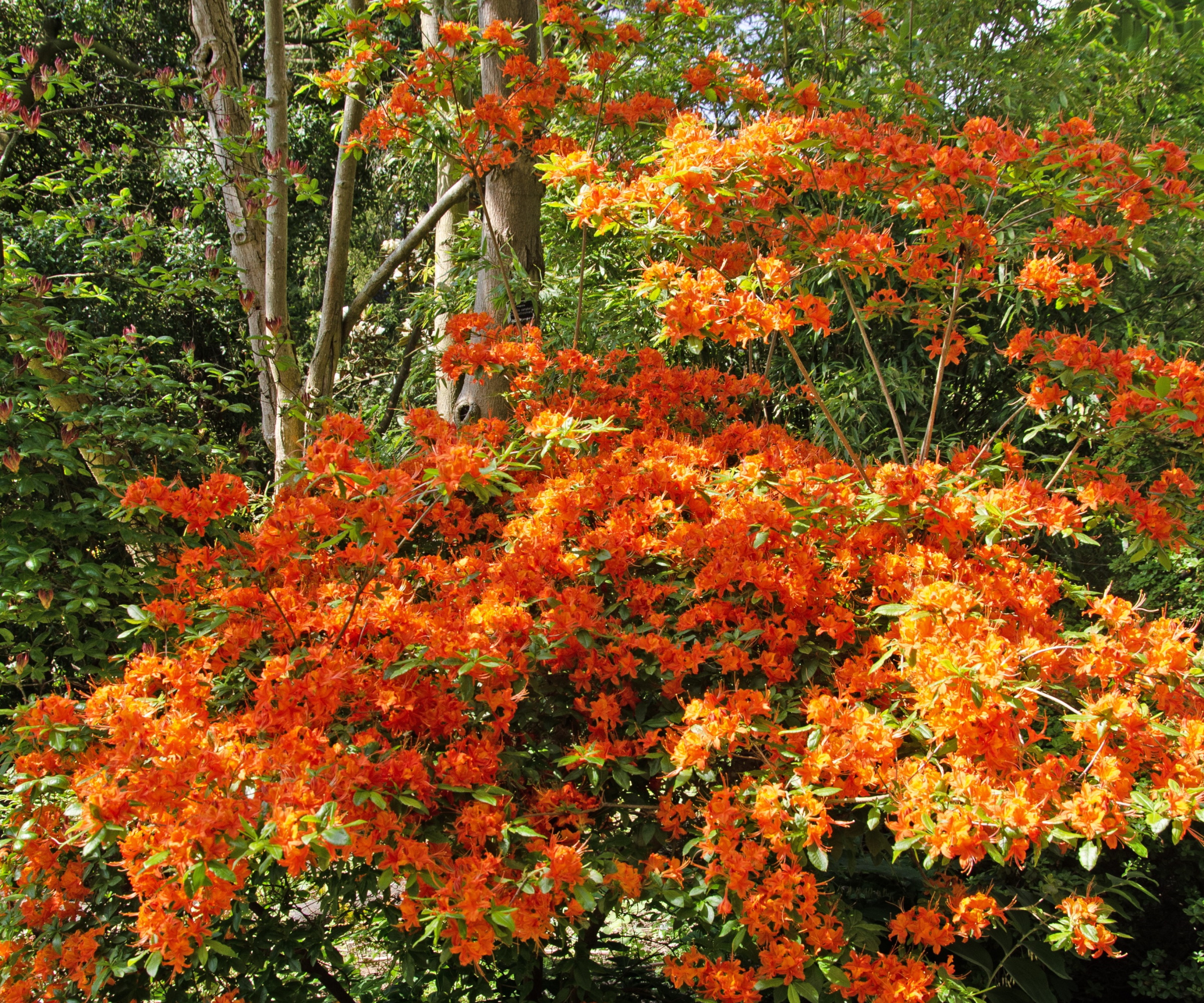
Apple cider vinegar is a great soil amender for acid-loving plants like azaleas, rhododendrons, camellias, dogwoods, and gardenias. The apple cider vinegar will help lower the soil PH, helping it become a more acidic environment, which acid-loving plants need to be able to absorb nutrients effectively.
For this to be effective over a long period, I would add apple cider vinegar to your watering can in conjunction with using coffee grounds in the soil to fertilize them, simply by adding used coffee grounds from your kitchen into your soil by lightly raking it in.
In a standard watering can (which holds about 2 gallons of water), add 1/4 cup of raw apple cider vinegar. If you have a larger watering can, 3-5 gallons, then use half a cup.
Water the soil, not the leaves, as this can burn them.
Design expertise in your inbox – from inspiring decorating ideas and beautiful celebrity homes to practical gardening advice and shopping round-ups.
2. Remove all rust from your garden tools
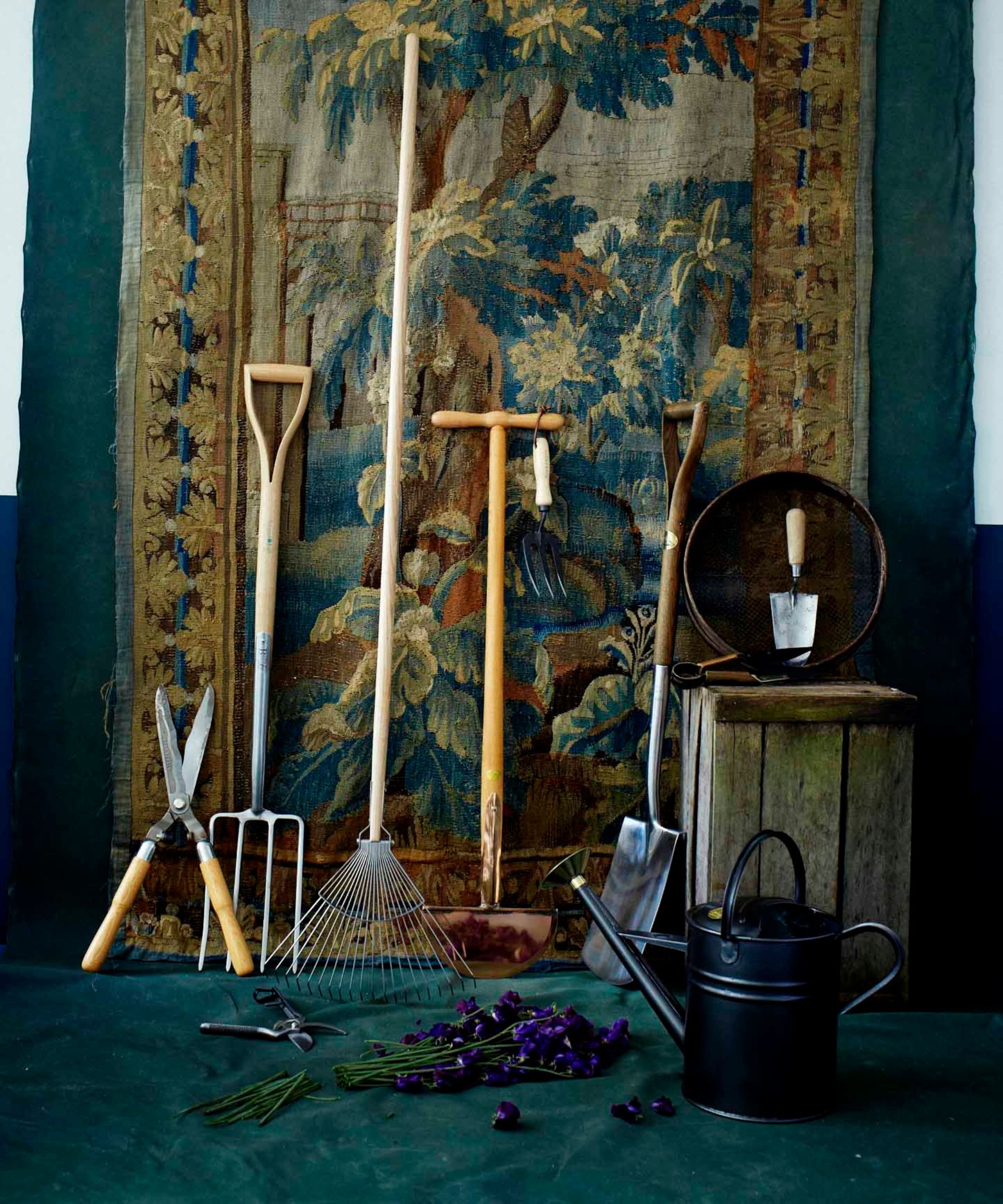
Apple cider vinegar is nature's rust killer. The acetic acid in the vinegar breaks down the iron oxide (rust) on the tool's surface, outperforming shop-bought chemicals every time.
For this, it would be best to use undiluted apple cider vinegar. You do not need expensive, raw, unfiltered vinegar (which contains the "mother," where the nutrients are stored), as there is no point in retaining nutrients for this job. An inexpensive large bottle of apple cider vinegar, like this one available at Amazon, would be perfect.
Dip your tools into a bucket of undiluted apple cider vinegar and leave to soak for 12-24 hours, depending on how badly your tools have rusted.
Once removed, you will see that all of the rust has vanished. If your tool is too big to fit into a bucket or a jar, then simply spray the apple cider vinegar directly onto the rusted area, leave for a minimum of 12 hours, and wipe away with a cloth. You can simply add the vinegar to a spray bottle like this one available at Amazon.
3. Removing slugs and snails
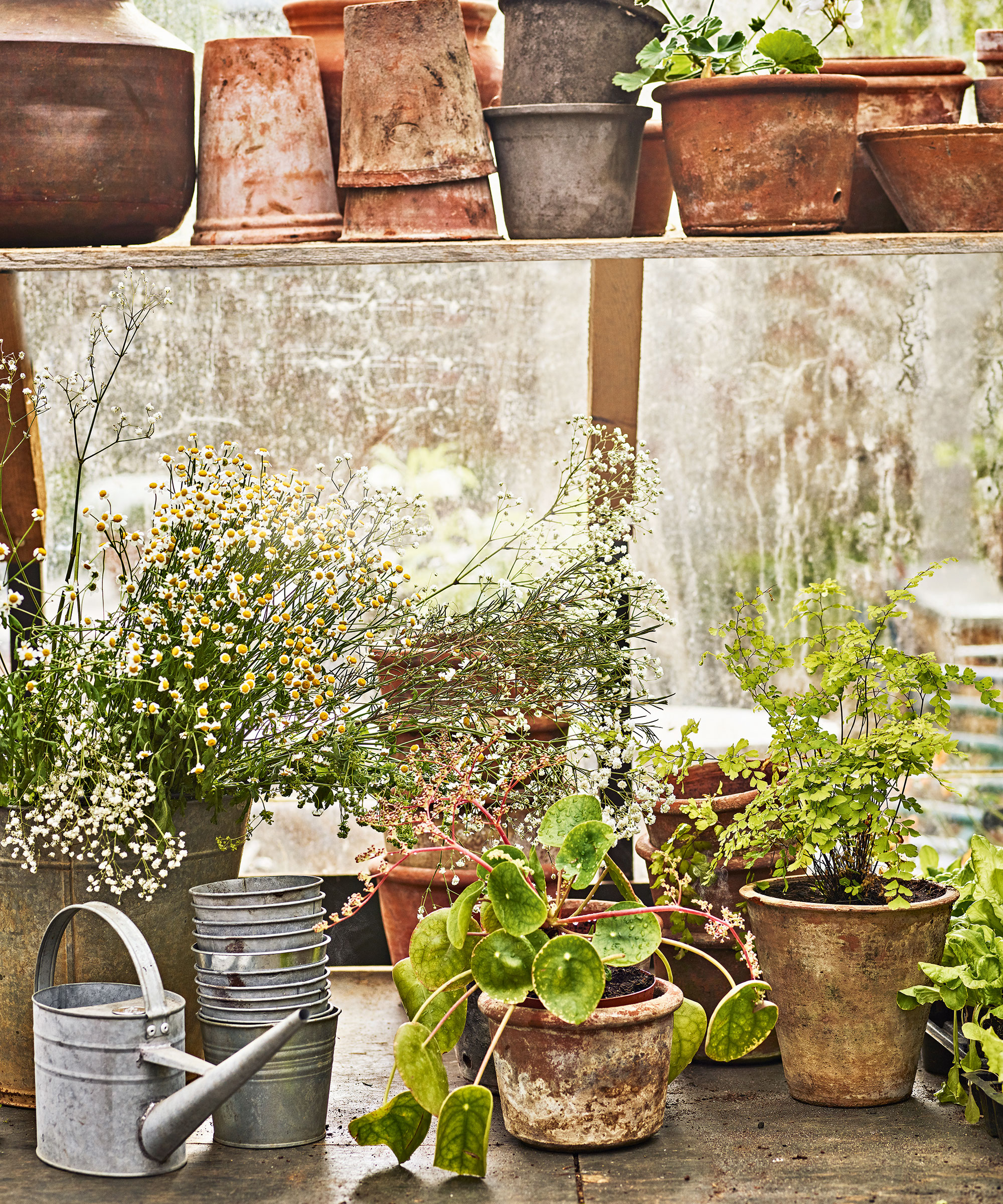
There are certain slug control methods (we're looking at you, broken eggshells), that seem to do absolutely nothing to deter hungry slugs from destroying our crops and flowers.
When it comes to getting rid of slugs, the two really effective methods are the use of copper tape, like this copper tape available at Amazon, and the use of apple cider vinegar.
Apple cider vinegar kills slugs by dehydrating them due to its acetic acid content, which acts as a natural pesticide. This method does rely on seeing the slugs, which is not always easy, but having a spray bottle of vinegar to hand for when you spot one is always handy.
Top tip: Dabbing undiluted apple cider vinegar around the rim of a pot will stop slugs and snails from sliding in, and adding Vaseline, plus apple cider vinegar, seems to completely stop them in their tracks.
4. Prevent fungal diseases
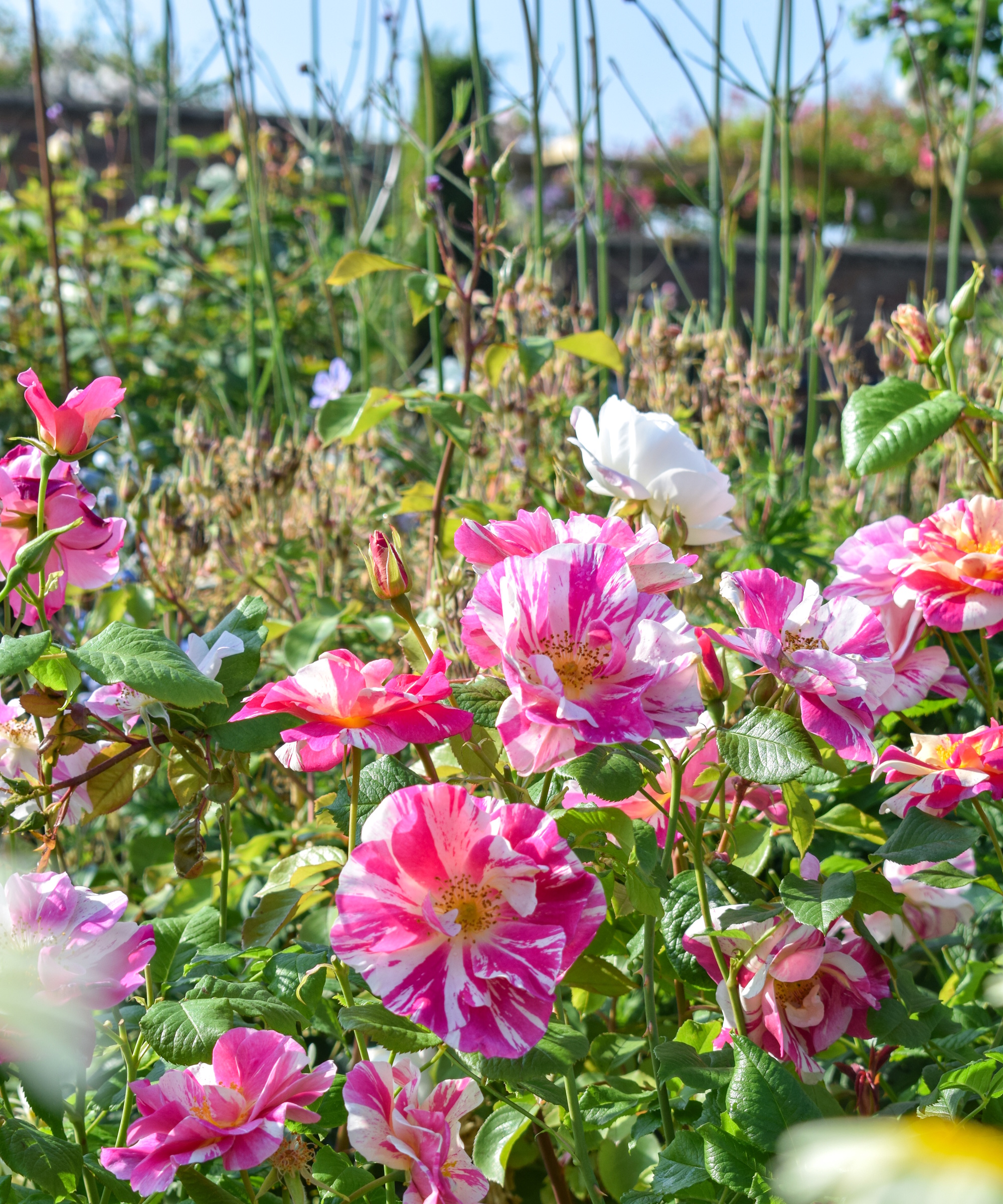
I know only too well about watching fungal diseases like powdery mildew and leaf spot take hold of garden plants. Happily, apple cider vinegar, which is a natural antifungal and antibacterial agent, can stop fungal diseases from arising and spreading.
Mix one part vinegar with ten parts tap water and use this solution to mist the leaves and stems of any affected plants. The acetic acid in the vinegar will help kill off fungal spores and prevent the further spread of the infection.
5. Deter deer
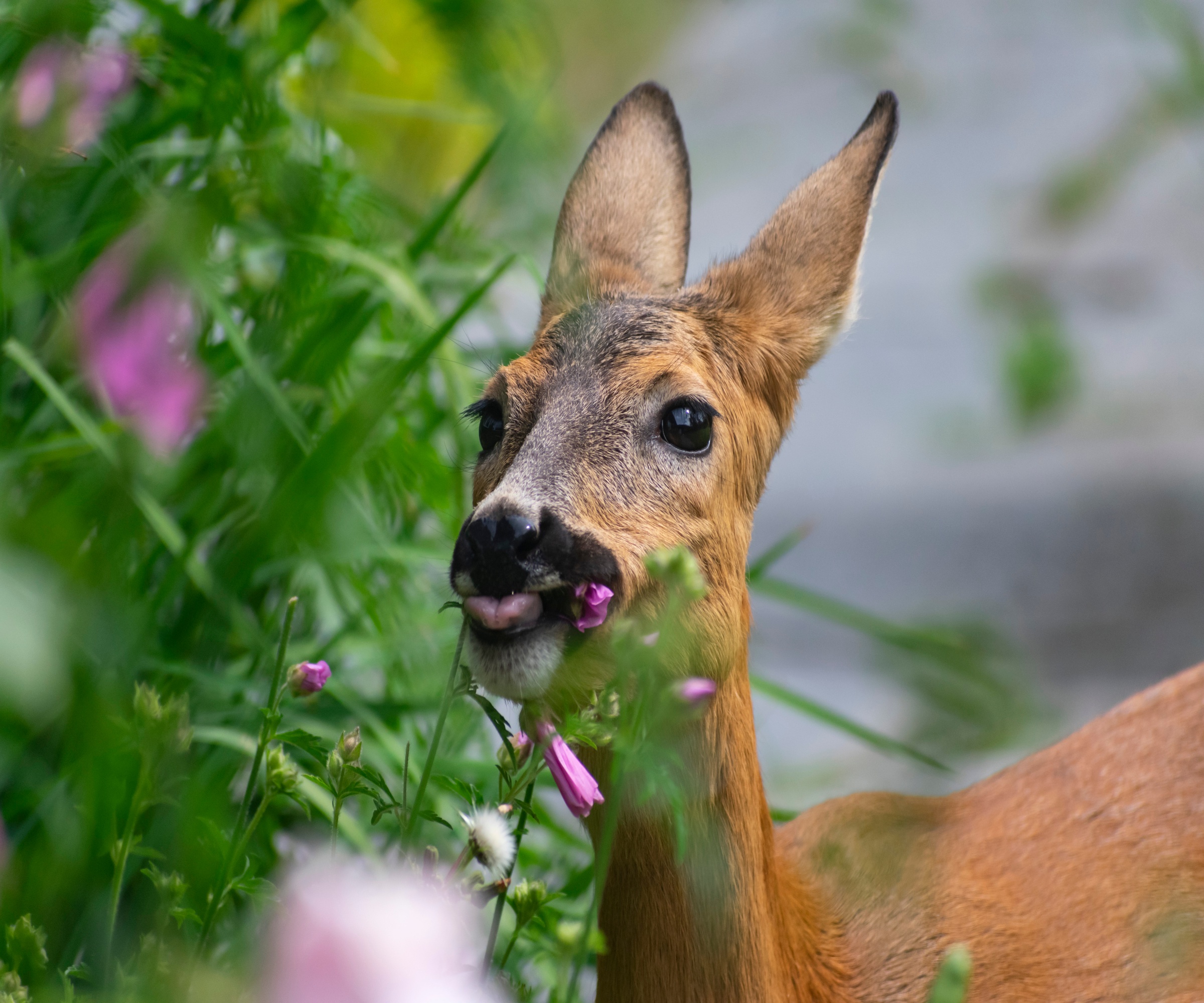
Due to its intense smell, which deer find very unpleasant, apple cider vinegar has proven to be a very effective DIY deer deterrent.
Instead of using harsh chemical-based deterrents, which are costly, harmful to wildlife of all kinds, and almost always ineffective, there are certain scents garden pests hate, including coffee grounds, garlic powder, and apple cider vinegar.
Simply douse rags or large cotton balls in undiluted apple cider vinegar (the more pungent, the better) and place them where you believe the deer, or fox, for that matter, are entering your garden. Be sure to replace them every few days, especially if it has rained.
It's worth keeping a few bottles of apple cider vinegar in your greenhouse or shed, or even under your kitchen sink, as it has so many uses, both in the garden, kitchen, and around the house, since cleaning with vinegar is wonderfully effective, too.

Sophia Pouget de St Victor is the UK Content Editor at Homes & Gardens, bringing readers the latest trends, expert insights, and timeless design inspiration tailored to a UK audience. With a background in luxury interiors and a qualification in Garden Design from London, she has a passion for creating spaces with character and emotional depth. Sophia gravitates toward interiors that defy definition, valuing individuality and effortless elegance. She lives in West London with her partner, two mischievous terriers, and a plump cat named Lettuce.